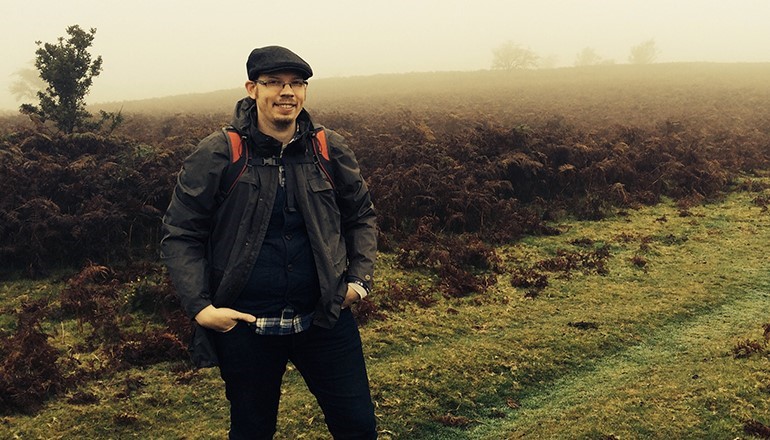We caught up with Dr Weekes in order to find out a bit more about his day-to-day work with Breast Cancer Now.
We caught up with Dr Weekes in order to find out a bit more about his day-to-day work with Breast Cancer Now.
What has been your career path so far?
I joined Professor Tutt’s lab at King’s College London nearly seven years ago before moving to his lab at The Institute of Cancer Research (ICR) mid last year.
From an early age, I realised I wanted to be a scientist and investigate biology relevant to human disease. This interest led me to do a degree in medical science at the University of Birmingham. During that time I developed an interest in cancer biology, which led me to pursue a PhD at the ICR.
After my PhD I worked in a number of laboratories at King’s College London developing my interests in studying fundamental processes happening inside cells and applying that new knowledge to finding better ways to treat cancer. These are interests that I also share with Professor Tutt.
What is your role?
There are multiple aspects to my role. As well as carrying out and designing experiments to answer biological questions, I support and train junior scientists and students in the lab. Another key area of my work is communicating my research to others through writing and publishing scientific papers as well as attending national and international conferences.
Could you give us a brief description of your current project?
Broadly, my work focuses on understanding triple negative breast cancer, an aggressive form of the disease. This type of breast cancer can accumulate new mutations very quickly and in this way progress and become resistant to treatments.
I would like to find out how triple negative cancer cells manage their DNA repair and copying processes, and how these processes influence the speed of accumulating new mutations. In particular, I am interested in how these processes can be targeted with drugs to treat triple negative breast cancer.
Could you give us some insight into the impact of this project?
One of my projects previously identified that a gene, called HORMAD1, that is usually required only in egg and sperm cells, is highly active in ~60% of triple negative breast cancers. Importantly, the activity of this gene predicts how cancer cells will respond to a chemotherapy drug cisplatin.
Others are now further investigating if HORMAD1 could be used in clinics to predict treatment success. Working with a PhD student we are also looking for vulnerabilities cancer cells may have if they rely on a highly active HORMAD1 gene.
What does your typical day involve?
My day starts early getting ready to travel into the lab in London. If I’m lucky and get a seat on the train, I use this time to catch up on emails or keep up with the ever-moving scientific literature. Once I get in, my days can vary and usually include looking after the cells that are important for many of my experiments, carrying out and analysing experiments, talking with other members of the team about our results and coming up with new ideas, and preparing talks or writing research papers for publication. This variety makes every day different and interesting.
What has been your most memorable work moment?
It’s hard to pick one specific moment, each little discovery can be memorable in its own way, but I think having my first research paper published is a clear moment that stands out.
What’s the worst part of your job?
It can take many experiments to discover new information, and major breakthroughs don’t come that often. However, the excitement of discovery and the knowledge that I’m contributing to better treatments for patients with breast cancer easily make up for this.
What’s the best part?
The moment of discovery when you have found something, be it big or small, and at that moment you are the only one who knows it.
If you weren’t a researcher what would your dream job be?
The free time I have tends to revolve around food and drink: either growing vegetables on the allotment, brewing my own beer or cooking. My dream job would somehow reflect this. One dream would be to have a smallholding where I could grow and make my own produce to sell.
Dr Weekes is just one of many researchers we are lucky to have with us at Breast Cancer Now, and we are very grateful for all the excellent work they do.
